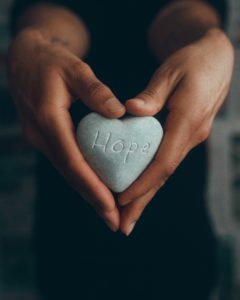What to Do with a Broken Relationship
Relationships are beautiful, but slightly fragile things. We thrive when we’re in meaningful relationships with others, and that is how it should be. Our relationships are a major part of what allows us to flourish, and likewise, when our relationships are out of joint, we find that our life loses color. That’s when we need to learn what to do with a broken relationship.
What to Do with a Broken Relationship
It can take years to build a relationship with someone – a long-cherished friendship, an open and mutually supportive parent-child connection, or a solid and fulfilling marriage. However, the unfortunate reality is that what takes years to build can be undermined in a matter of mere moments. If you’re facing challenges, Huntington Beach Christian Counseling can help you rebuild and strengthen those relationships.
Whether through a betrayal of trust, unkind words spoken in anger, or the failure to meet expectations, a relationship can end up facing serious challenges. Though sometimes the damage done is hard to repair, relationship challenges can often be overcome in healthy ways.
The older you get, the more you come to understand how precious relationships are, and their fragility as well. Broken relationships are a sad fact of life, but thankfully we aren’t left without options for what to do if things go south. Whether you are the one that has made a mistake that leaves a relationship in shambles, or you’re the one that is on the receiving end, here are a few things to consider about a broken relationship.
Recognize how brokenness is a part of life.
The world is a messy place. It’s not okay that it’s a messy place, but it’s just the reality. Part of the messiness of the world and ourselves is that our relationships are less than perfect, just as we are less than perfect. Disappointment and heartbreak are just some of the seasons we can expect in life (Ecclesiastes 3).
Sara Teasdale wrote, “It is strange how often a heart must be broken before the years can make it wise.” The messiness and brokenness of our world hurt, and our hearts will be broken many times in our lifetime, but there is one small comfort in the face of all this – we can learn and grow even amid these painful experiences, and our hearts can become more resilient and wiser.
 This means that broken relationships aren’t the end of us – they don’t close our doors to other opportunities, and they certainly aren’t a unique occurrence. While it can be devastating and hugely challenging to suffer from a broken relationship, we don’t have to be overwhelmed and entirely undone.
This means that broken relationships aren’t the end of us – they don’t close our doors to other opportunities, and they certainly aren’t a unique occurrence. While it can be devastating and hugely challenging to suffer from a broken relationship, we don’t have to be overwhelmed and entirely undone.
Try to find out what happened.
When a relationship breaks down, it may come as a complete surprise to you. Or, in some cases, perhaps you know or can make a good guess at what happened and how things fell apart in your relationship. Perhaps you can pinpoint the precise moment when things crumbled and the relationship was changed forever. While it may seem like dragging yourself through unnecessary pain – doing a post-mortem of your relationship can help you in several ways.
Taking time to discern what happened can help you in making a meaningful apology and in changing certain things if that’s what’s needed. For instance, If you betrayed your friend’s trust by telling someone else a secret, you can take several steps.
You may need to work through what you did, why you did it, and exercise empathy for the other person. These steps will help you understand on a deeper level what went wrong and how you find yourself in your present predicament. When you make your apology, all these things are elements to consider.
Knowing what may have gone wrong will alert you to things you should avoid in other relationships. We want to grow as people, and one way to do that is to learn through our own mistakes. Whether you’re the one responsible for the broken relationship or not, we can learn important lessons about ourselves and other people in the wake of a disruptive event in the relationship.
You may need to adjust expectations, communicate needs more clearly, or establish clearer boundaries with others. These are valuable ideas to ponder because they help us understand ourselves and our relationships better. Understanding why this particular relationship broke down can help you get back on track more securely, or it can help you better cultivate your other relationships.
 While it’s important to understand what happened and how things fell apart, we must also recognize that understanding what happened does have its limits. In Mend my Broken Heart, Jocelyn Soriano wrote “Yes, I understand why things had to happen this way. I understand his reason for causing me pain. But mere understanding does not chase away the hurt. It does not call upon the sun when dark clouds have loomed over me. Let the rain come then if it must come! And let it wash away the dust that hurt my eyes!”
While it’s important to understand what happened and how things fell apart, we must also recognize that understanding what happened does have its limits. In Mend my Broken Heart, Jocelyn Soriano wrote “Yes, I understand why things had to happen this way. I understand his reason for causing me pain. But mere understanding does not chase away the hurt. It does not call upon the sun when dark clouds have loomed over me. Let the rain come then if it must come! And let it wash away the dust that hurt my eyes!”
If you’re the one who has been betrayed and hurt, understanding what happened and why may be cold comfort. Sometimes, understanding helps us come to grips with our new reality, but it can only go so far.
Ask for forgiveness.
We all make mistakes. But we don’t all make the same mistakes in the same way, nor are we consistent in dealing with others the way we would want to be treated. This makes for messy relationships, self-righteousness attitudes, and often an unwillingness to change.
Asking for forgiveness is one important way to try and restore a broken relationship. When you acknowledge what you’ve done wrong, recognize how you’ve hurt the other person, and can clearly see ways of doing better in the future, that can create room to repair a broken relationship. An apology might not fix everything, but it’s a great starting point.
If trust was broken, it may be a long road to get back there again, if you can manage it. One of the ways an apology is powerful is that it lets the other person know that you’re on the same page about your behavior. They now know that you know that what you did was wrong, and for them that can be an important step in finding healing.
If you’re the one whose trust was violated, you can consider what your options are, including extending forgiveness to the person that hurt you. The Bible says, “Be kind and compassionate to one another, forgiving each other, just as in Christ God forgave you” (Ephesians 4:32). This verse is a powerful reminder of our own brokenness and need for forgiveness. It allows us to empathize with those who have sinned against us.
 Forgiving the other person might not mean that things completely reset, but it does mean that you’re choosing to let go of any resentment or bitter feelings toward that person. It’s a way to begin the work of rebuilding the relationship, should you so choose.
Forgiving the other person might not mean that things completely reset, but it does mean that you’re choosing to let go of any resentment or bitter feelings toward that person. It’s a way to begin the work of rebuilding the relationship, should you so choose.
Additionally, if you’re the one who was hurt, you might need to redraw or restate your boundaries with other people. Every healthy relationship requires healthy boundaries, and when one or more of those are violated, that situation can provide you with an opportunity to either restate or redraw those boundaries as needed.
Pick up the pieces.
You need to decide for yourself how the relationship is important to you and what you’re willing to do for it. True friendships, familial relationships, and other meaningful connections with others aren’t easy to find or replace, especially if they’ve been the work of years to cultivate.
This doesn’t mean that you can’t or shouldn’t move on from these relationships if they are harmful, but it does mean we need to weigh carefully what we do with them. In some cases, walking away may be the best thing you can do, while in others working on things is what wisdom dictates.
Take time to heal and process what’s happened. Picking up the pieces of a broken relationship is hard work, whether you’re picking up those pieces to try and put them back together again, or you’re picking them up to set them aside.
Whether you’re the cause of the broken relationship or not, when a significant human connection falls apart, it hurts. If you need help processing a broken relationship, don’t hesitate to reach out to a trustworthy individual such as a friend, family member, spiritual advisor, or trained Christian therapist. Christian Counselors at Huntington Beach Christian Counseling are here to guide you through healing and restoration.
“Just Married”, Courtesy of Nikita Shirokov, Unsplash.com, CC0 License; “Daisy from Below”, Courtesy of Aaron Burden, Unsplash.com, CC0 License; “Hope”, Courtesy of Ronak Valobobhai, Unsplash.com, CC0 License; “Reading the Bible”, Courtesy of Jessica Delp, Unsplash.com, CC0 License





